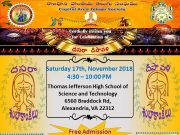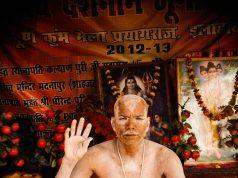Reincarnation is a spiritual Hindu belief that is also held by many other cultures throughout the world. Although the fundamentals to all the theories of reincarnation are similar there are subtle differences – and not all are believable.
Hindus call the cycle of reincarnation, samsara. And this version of the ancient doctrine makes complete sense on so many levels.
Whether you believe in reincarnation or not, the Hindu idea still holds important lessons we can learn in our current human lives. There are specific aspects of the doctrine that help make us consciously aware of our behaviour and desires.
In all cultures, reincarnation involves the soul passing from one life of existence to another. Mostly humans being reincarnated as another human. The purpose of reincarnation is for the atman, the ‘I’ to reconnect with Brahman – the supreme being.
What makes the idea of samsara – but at the same time can cause confusion, debate and disbelieve – is that the soul is seen as eternal and can reincarnate as anything; plant, animal, or mineral.
The co-founder of the Theosophical Society, Helena Blavatsky eludes to the same principle in her writings. Blavatsky claims that from being a child she was able to communicate with everything around her – even the furniture – on the basis they were soul fragments.
This notion also fits into the idea that we are all connected to one source of energy – a discovery modern scientists acknowledge could be possible. Studies in quantum mechanics suggests that everything in nature shares information.
As furniture is made from natural resources such as wood and metal, they are also connected to the web of electro-magnetic energy. And so goes Blavatsky’s wisdom.
It is possible that the majority of Hindu’s do not believe we can reincarnate as a mineral. It is rarely spoken of although samsara has been interpreted from ancient Sanskrit to include everything that has “physical forms.”
So if it is true that your next life could be as a bar stool, there is no wonder reincarnation is so unbelievable. But Hinduism also includes the law of karma. And that’s when reincarnation does start to make more sense.
Why karma binds the theory of reincarnation together
To understand reincarnation, we need to first understand the concept of karma – the law of cause and effect. This is how religionfacts.com describe karma:
“The Sanskrit word karma means “actions” or “deeds.” As a religious term, karma refers to intentional (usually moral) actions that affect one’s fortunes in this life and the next.”
The broader meaning of karma in Hindu philosophy is that this fundamental law binds the soul to the cycle of rebirth. Thus when people ask why a newborn baby is inflicted with an illness or disability, the Hindu answer is because they committed bad karma in a past life.
Science and philosophy describe karma in the same way – cause and effect. Every action we commit to will result in an end product. When you shout, somebody gets upset, or angry. Or maybe they just laugh. The point is, you caused the effect through your actions.
So let’s go back to quantum mechanics. Actions are energy. This is a fundamental truth proven by science. And every day living. That’s why we get tired when we exercise.
So if we are all connected to a completely connected web of energy, we can assume that whatever energy you send out will be returned to us in one form or other.
Let’s not forget, we experience karma in this life as well. So why not when we die. Could bad karma impact on the next life?
According to Hindu philosophy, yes it can. Because karma attaches to our soul. The Brahman never changes. The Atman does. And as atman, it is our quest to reconnect with Brahman. This is a divine philosophy that has been believed for thousands of years.
So if the energy we accumulate in this life, especially if it is not resolved in this life, is attached to our soul, it stands to reason that the karma will be brought into the next world when we are born again.
But there is also another view which confuses the matter even further. Our choice of soul reincarnation.
The limbo state of reincarnation
Hindu’s say that when we die we exist in other realms for an unquantified period of time. Whilst we are in this limbo state between physical forms of existence, our soul is assessed. We then have to determine what our next life should be in order to learn the lessons we have failed in previous lives.
So does our soul consciously choose what our next life will be – or is there a supreme ‘God’ that makes the choice for us? Many religions believe it is the latter, including Hindus.
Yet Hindu mythology classifies life in the Trimurti as that which should be created, dissolved and preserved. This is another impression of reincarnation in the current life. We have to destroy things we don’t need in order to create and preserve samsara.
By way of a better explanation, when we have ideas, beliefs, character traits and habits that no longer serve us, we need to get rid of them. But idea, beliefs, traits and habits are part of our fabric as human beings. They are not easy to unpick.
However, Shiva, the destroyer, has the power to dissolve ego which harbours things we no longer need in our lives. And it is true that when we have a different understanding of something we can change our personalities.
This is death and rebirth in your current life. You kill old habits or ideas and you start doing things differently. You change character traits and become a different person. You change your energy and thus can rid yourself of bad karma.
Without experiencing reincarnation by means of remembering our past lives, it is impossible to categorically claim whether samsara is true or not. Although there are plenty of people who claim to have had such experiences.
What are your thoughts on reincarnation? Have you had a past life experience?


























